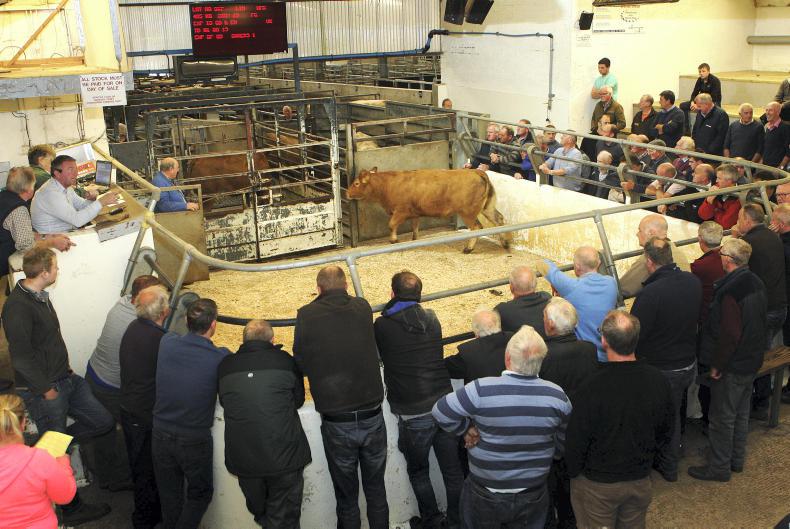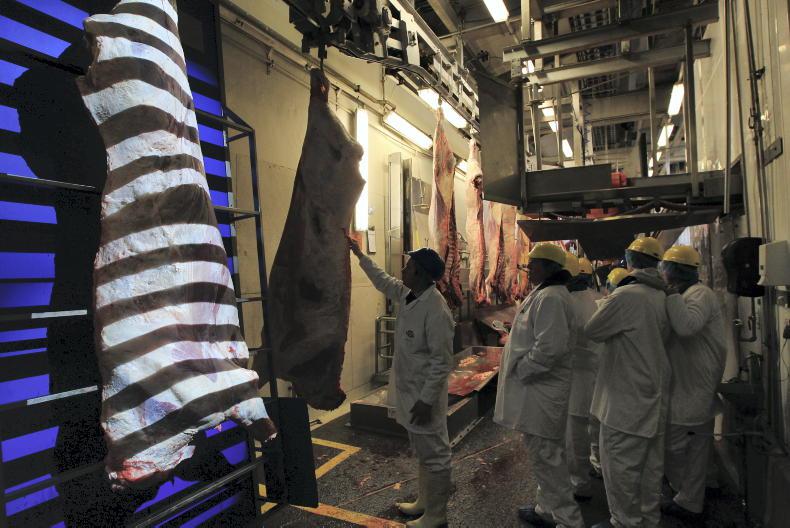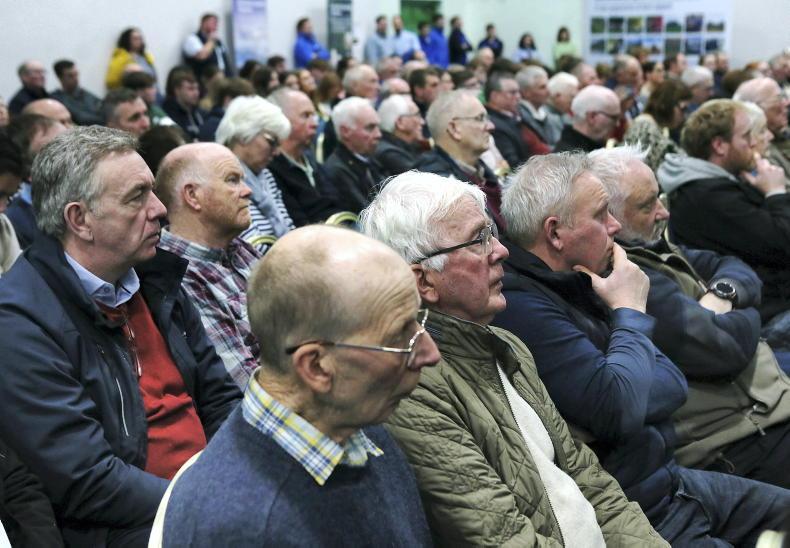A number of mart managers spoken to by the Irish Farmers Journal have outlined their surprise and anger at ongoing commentary in the media that they are somehow able to delete moves off APHIS.
“We have no ability to delete moves off APHIS. Only DAERA can do that. To suggest otherwise is just wrong,” said a leading figure in the mart trade.
The media furore surrounding the outcome of an employment tribunal involving DAERA and former vet employee Dr Tamara Bronckaers has raised concern that it could lead to even tighter controls being enacted around a system that is already highly regulated.
How it works is that a dealer buys cattle in a mart, and then gets a permit issued for the farm of destination, which triggers the issuing of a pass, allowing the dealer to leave the mart with the cattle.
However, in a small number of cases the receiving farmer might reject the move, so an alternative farm destination is sought either while the cattle are still in the mart or in transit after the sale. At present, a mart can correct the permit so long as this correction is done within one working day of the sale.
It is understood that the exact same system applies in the Republic of Ireland. And with a couple of prominent marts in NI operating on a Saturday, it inevitably means that it is Monday before a permit might be corrected (around 50 hours later).
“This is a corrective amendment to APHIS. It is not a deletion of the move. There is no loss of animal traceability. The vast majority of permits do not need to be corrected,” said the mart owner.
That has been confirmed by a DAERA spokesperson who said that for the 12-month period, from November 2020 to October 2021, only around 2% of movements had a corrective amendment made by a mart within one working day after the original sale.
“This corrective amendment is necessary to ensure the information held on the APHIS database accurately reflects the location of all animals and the movements that took place,” said the spokesperson.
DAERA also confirms that if an animal is physically moved on to a holding after a sale, this must be notified on APHIS. And if this destination farm is closed with TB, then the animal can only subsequently go for direct slaughter.
“Where the Department has information or evidence of a false notification, the Department will investigate and take appropriate enforcement action,” said the spokesperson.
Review
An internal review of the entire system has been undertaken on the back of the Bronckaers case, and subsequent recommendations are being implemented by DAERA.
It is this Bronckaers tribunal that first raised the whole concept of “deleted moves”. The tribunal found that she was constructively dismissed after her concerns around traceability and animal welfare at marts were effectively ignored by her line management.
In particular, Dr Bronckaers had uncovered that in some cases it could be up to 50 hours after a sale before a correction was made (as per a Saturday sale).
She also raised concerns that the animals might initially have gone to a TB-infected herd before being moved on to a TB-free herd. In one particular week, she identified that 30 out of the 90 corrected moves involved a permit being initially issued to a herd that was not TB free. Some officials suspected that cattle might actually spend a night on these farms, before being moved on the next day, when the move was corrected on APHIS. If that did happen, it was clearly against the law.
Where the system was being abused, Dr Bronckaers wanted the marts warned, and potentially enforcement action taken.
Separately, she also raised concerns about animal welfare in some marts, particularly where sheep were held overnight without food or water.
Read more
Ex DAERA vet wins unfair dismissal case
Beef finisher disputes DAERA evidence in court
A number of mart managers spoken to by the Irish Farmers Journal have outlined their surprise and anger at ongoing commentary in the media that they are somehow able to delete moves off APHIS.
“We have no ability to delete moves off APHIS. Only DAERA can do that. To suggest otherwise is just wrong,” said a leading figure in the mart trade.
The media furore surrounding the outcome of an employment tribunal involving DAERA and former vet employee Dr Tamara Bronckaers has raised concern that it could lead to even tighter controls being enacted around a system that is already highly regulated.
How it works is that a dealer buys cattle in a mart, and then gets a permit issued for the farm of destination, which triggers the issuing of a pass, allowing the dealer to leave the mart with the cattle.
However, in a small number of cases the receiving farmer might reject the move, so an alternative farm destination is sought either while the cattle are still in the mart or in transit after the sale. At present, a mart can correct the permit so long as this correction is done within one working day of the sale.
It is understood that the exact same system applies in the Republic of Ireland. And with a couple of prominent marts in NI operating on a Saturday, it inevitably means that it is Monday before a permit might be corrected (around 50 hours later).
“This is a corrective amendment to APHIS. It is not a deletion of the move. There is no loss of animal traceability. The vast majority of permits do not need to be corrected,” said the mart owner.
That has been confirmed by a DAERA spokesperson who said that for the 12-month period, from November 2020 to October 2021, only around 2% of movements had a corrective amendment made by a mart within one working day after the original sale.
“This corrective amendment is necessary to ensure the information held on the APHIS database accurately reflects the location of all animals and the movements that took place,” said the spokesperson.
DAERA also confirms that if an animal is physically moved on to a holding after a sale, this must be notified on APHIS. And if this destination farm is closed with TB, then the animal can only subsequently go for direct slaughter.
“Where the Department has information or evidence of a false notification, the Department will investigate and take appropriate enforcement action,” said the spokesperson.
Review
An internal review of the entire system has been undertaken on the back of the Bronckaers case, and subsequent recommendations are being implemented by DAERA.
It is this Bronckaers tribunal that first raised the whole concept of “deleted moves”. The tribunal found that she was constructively dismissed after her concerns around traceability and animal welfare at marts were effectively ignored by her line management.
In particular, Dr Bronckaers had uncovered that in some cases it could be up to 50 hours after a sale before a correction was made (as per a Saturday sale).
She also raised concerns that the animals might initially have gone to a TB-infected herd before being moved on to a TB-free herd. In one particular week, she identified that 30 out of the 90 corrected moves involved a permit being initially issued to a herd that was not TB free. Some officials suspected that cattle might actually spend a night on these farms, before being moved on the next day, when the move was corrected on APHIS. If that did happen, it was clearly against the law.
Where the system was being abused, Dr Bronckaers wanted the marts warned, and potentially enforcement action taken.
Separately, she also raised concerns about animal welfare in some marts, particularly where sheep were held overnight without food or water.
Read more
Ex DAERA vet wins unfair dismissal case
Beef finisher disputes DAERA evidence in court










SHARING OPTIONS